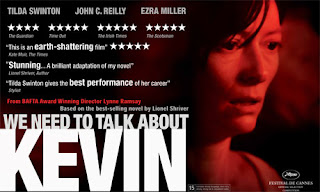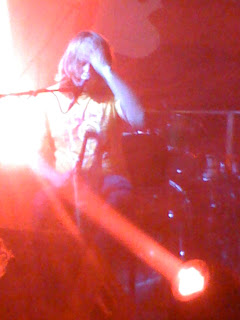 Sometimes concerts take some time to actually settle in your head, as if there's about 90 minutes of your life one evening missing, simply un-processable, un-critiqueable.
Sometimes concerts take some time to actually settle in your head, as if there's about 90 minutes of your life one evening missing, simply un-processable, un-critiqueable.Sunday 27 November 2011
Table Manners
 Sometimes concerts take some time to actually settle in your head, as if there's about 90 minutes of your life one evening missing, simply un-processable, un-critiqueable.
Sometimes concerts take some time to actually settle in your head, as if there's about 90 minutes of your life one evening missing, simply un-processable, un-critiqueable.Wednesday 16 November 2011
Young People Nowadays


These are two gloriously cinematic films, which certainly wouldn't have justice done to them on a television screen. Andrea Arnold puts an astonishing weather-beaten array of natural greens, greys and russets into the frame, and even squares off the frame itself to heighten the sense of claustrophobia and to avoid opening up the film to an easily-delivered vista-of-nature. Her camera follows Heathcliff from beating to hillside to stable, punctuating the barely-imaginable journey Arnold charts for him, from act of charity, to dark obverse, to return of the repressed, with sudden, harsh, raw panoramas.
Lynne Ramsay (maker of the gloriously drifting film of Alan Warner's novel Morvern Callar) seems to get a lot more value out of her punctuations of curtains, diffused light, passers-by seen from cars, spacious-yet-ugly interiors. As far as I know, Tilda Swinton has never given a bad performance in a movie, and here she’s given more than enough time to put the viewer through the wringer with some desperately effortful mothering and blank, exhausted stares.
Tuesday 15 November 2011
Life and Death

 To my eyes, these are both films about the very thin line between life and death.
To my eyes, these are both films about the very thin line between life and death. Thursday 10 November 2011
Post-Industrial Graceland



Sean and I went to Birmingham in search of noise recently. We found it initially in the caustic hum of City Centre area kebab-joint fridges, and the very loud night-club attire of the Black Country's teens in search of joy at the various Vudus, Rages, Wasteds that litter the mainstream club map of the Digbeth- Bullring borders.